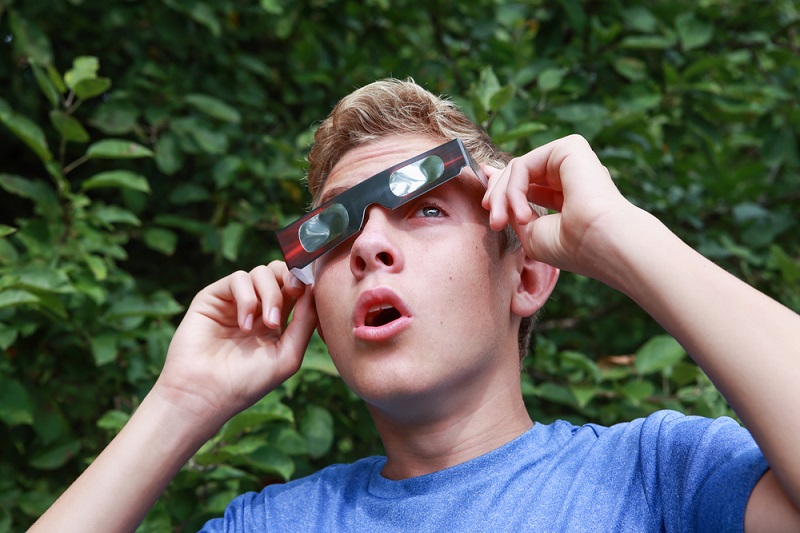Solar Eclipse Lawsuit: Couple Sues Amazon Alleging Faulty Glasses


A couple in South Carolina has filed a lawsuit against Amazon, alleging that the company sold faulty solar eclipse glasses that did not adequately protect their eyes during last week's eclipse.
The proposed class-action lawsuit was filed in a South Carolina federal court on Tuesday (Aug. 29), according to Reuters.
The lawsuit says that the couple — Corey Thomas Payne and Kayla Harris, of Charleston, South Carolina — purchased a three-pack of solar eclipse glasses on Amazon in early August. They used these glasses to view the solar eclipse on Monday, Aug. 21, which was visible across the United States.
They did not look at the sun without wearing the glasses, but soon after, they claim that they experienced a number of eye symptoms, including dark spots in their vision, blurriness and changes in perception of color, the lawsuit says. These are all symptoms of solar retinopathy, or damage to the eye's retina that happens from looking directly at the sun. Often, symptoms of solar retinopathy are temporary, but sometimes they are permanent.
Prior to the eclipse, Amazon did issue a recall of some of the solar eclipse glasses sold on its site. In these cases, customers received an email from Amazon saying that the company could not verify that the purchased glasses were made by a recommended manufacturer. But Payne and Harris say that they never received the recall email.
The lawsuit is seeking to represent people who, like Payne and Harris, claim they experienced injuries after using solar eclipse glasses bought on Amazon.
Original article on Live Science.
Get the world’s most fascinating discoveries delivered straight to your inbox.

Rachael is a Live Science contributor, and was a former channel editor and senior writer for Live Science between 2010 and 2022. She has a master's degree in journalism from New York University's Science, Health and Environmental Reporting Program. She also holds a B.S. in molecular biology and an M.S. in biology from the University of California, San Diego. Her work has appeared in Scienceline, The Washington Post and Scientific American.


